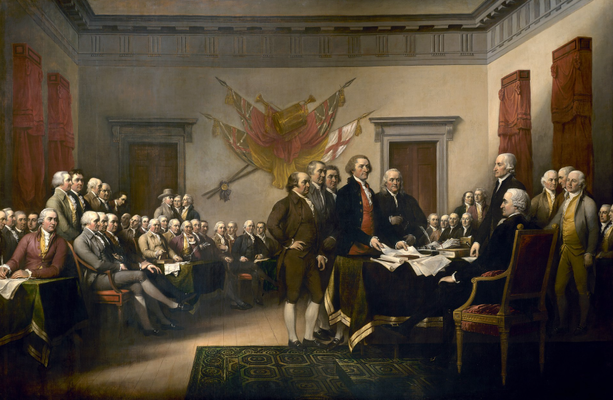Part of our platform at Convention of States Action is passing an amendment for term limits for federal officials. But what is the underlying reason for this potential change to our Constitution?
Elected Office As a Civic Duty
Local and state elected offices are generally held by people who felt compelled to change things for the better in their local communities. These elected officials are actually just ordinary people. These people are your brothers, sisters, parents, neighbors, coworkers etc.
To emphasize the approachability of these local elected officials, many state and local governments and governing bodies (such as school boards) have implemented very low compensation limits for elected officials. This is done to make political office unappealing for financial gain and to constantly rotate new citizens into office.
An Argument Against Term Limits?
There is a notion among the public that term limits are actually a restriction on the voting public for selecting the "right man for the job" and in certain instances that may be true. There may be times in local and state elections when an honest official that has served the public well would have to be sent home because of term limits. It's also been stated that term limits make the elected official less attentive to public concerns in their final term.
The Political System
The people who are elected to public office to change things for the better come to understand the workings of the governmental system. This is not a bad thing. Understanding board, council, or legislative rules and bylaws are helpful in passing good legislation/rulings and being effective in government.
But some people also come to understand how they can manipulate the governmental system for their own gain. This at its very core is really a form of corruption. An example of this is cooperating with a political opponent to give the illusion of a fair race to the public. In reality, only one person is destined to win.
The Power of Incumbency
There are some people in Washington, D.C. who are elected (and reelected) to federal offices who come to understand the political system in D.C. for their own personal gain. Examples of such actions are (ab)use of campaign finance laws for family members, coercion of publicly traded companies for financial betterment, or simply continuing their state hegemony as the incumbent. Currently, there is no provision in the Constitution to limit their duration in office.
Historical Basis for Term Limits
The idea of term limits is not a new phenomenon. 2000 years ago, the leaders of the Roman Republic realized that term limits had to be placed on their most powerful elected officials. Each year, the Roman Senate elected two Consuls to lead the nation. These Consuls held near absolute authority in political and military decision-making for the Republic.
Because of the scope of their position, their terms were for one year and they could not be elected to consecutive terms. Even further, they could not become reelected to the office of Consul within 10 years of their previous term. For the first 400 years of the Republic's existence, the occurrence of multiple consulships by a single person was nearly unheard of. The idea of civic duty/public service was highly regarded among the citizens of the Roman Republic.
Return to the Core Values
Our Founding Fathers framed our government on the model of the Roman Republic coupled with the Greek model of Democracy. The authors of our Constitution knew that these governmental models were built on the core civic virtue of public service. To them, it was understood that public service was only a temporary duty and that the individual should return to their affairs at the end of their service.
The congressional delegation in Washington, D.C. has forgotten this ideal and has usurped the government for their own personal gain. We can use a Convention of States to place a historical model of term limits on Congress to help bring the ideal of civic duty back to the forefront of federal public office.
Together we can get the right people for the job back in office!


